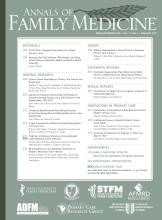The reaction1 to Egnew’s essay “Suffering, Meaning, and Healing: Challenges of Contemporary Medicine”2 reveals deep yearnings and strong convictions among clinicians, patients, and medical students. Clinicians describe a yearning for an integrative approach to medicine in which “relational wisdom and clinical wisdom [are] inextricably tied together”3 so that we can “reclaim our own souls, and…learn to heal again.”4 On an individual level, this requires self-awareness5 and a willingness to provide patients with space in which healing can take place.6 On a broader level, it requires medical training that emphasizes patient centeredness7 and the ability not only to communicate but to connect.6 In addition, according to a medical student, role models of physician healers “are essential to counteracting the sometimes unhealthy pressures we face as students.”8 Patients describe the transformative power in self-defined healing,9 and they challenge us to develop language that reflects a true partnership between clinicians and beneficiaries of care.10 Family medicine, which sprang from a desire to revolutionize care, may be a natural home for the physician-healer movement, according to Farber: “My hope is the old revolutionaries of Family Medicine will join forces with the new revolutionaries of Palliative Care to further move us along the path of training and supporting physician healers.”11
This powerful essay and compelling discussion light an undeniable path forward to re-form health care, starting with ourselves, to reduce suffering, restore meaning and promote true healing. Consider reading the essay and discussion on paper, away from your computer, but close to your heart. Then, consider how you can begin the inner transformation and external action that these words compel.
MORE HIGHLIGHTS
The rich online discussion also includes suggestions for:
-
Overcoming fragmented health care12
-
Refocusing generalists and specialists on their most effective and efficient roles and shared care13
-
Using listening and relationship rather than tests to foster a sense of patient well-being14
-
Implementing incentives so that they do more good than harm15
-
Reframing our interpretation of the effect of personality on study data completeness18
-
Making the cholesterol-lowering benefits of barley tolerable19
-
Improving quality of care20
-
Improving communication with a pause during care and by reforming care away from only brief encounters21
-
Understanding how important health literacy is to effective health care22
-
Approaching the multifactorial nature of asthma and its multilevel treatment23
-
Overcoming underrecognition of the impact of direct-to-consumer advertising on the outpatient visit and prescribing24
-
Fanning or slaking turf wars around who should perform colonoscopy25
-
Assessing the trade-offs involved in using short or long instruments to screen for postpartum depression26
-
Implementing processes for detecting and managing post–myocardial infarction depression27
-
Reconsidering relevancy and bureaucratic load of the National Committee for Quality Assurance assessment of the patient-centered medical home concept28
-
Understanding uncertainty29
-
Considering the trade-offs in paper vs electronic data collection in office-based research30
We were delighted to see the comments of a residency journal club.31 We encourage other local journal clubs, and all readers, to join the discussion at http://www.AnnFamMed.org
- © 2009 Annals of Family Medicine, Inc.







